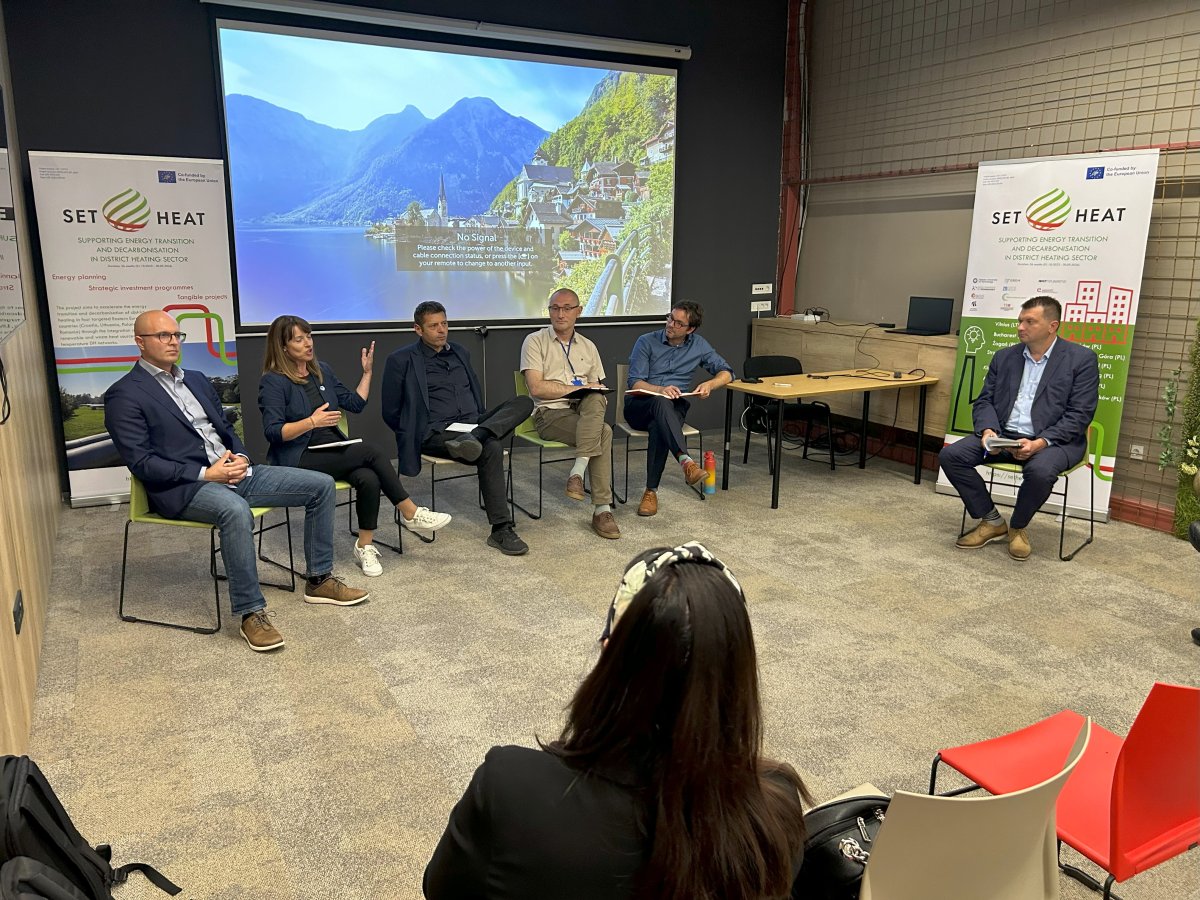The third SET_HEAT Project Knowledge Transfer Workshop took place in Zagreb, Croatia, from 11 to 13 June 2024.

The third #Life_Programme #SET_HEAT project knowledge transfer workshop took place in Zagreb (Croatia) from 11th to 13th June 2024. The project team was hosted at the premises of the #HEP_toplinarstvo d.o.o. On the second and third day the workshop took place in the WESPA Coworking & Event Space. The main topic of the workshop was the development of model investment projects, energy transition, and decarbonisation vision for the Zagreb district heating system. Numerous projects were discussed during the workshop. The draft plan for Zagreb focuses on the integration of several district heating systems, network extension, and the implementation of new production units such as heat pumps, solar thermal plants, and electric boilers. The newly built natural-gas-fired combined cycle cogeneration plant will remain an important production unit at least until 2045. Heat storage (short-term and seasonal) will become a key component of the system, which will be optimised to ensure competitive heat prices compared to individual heat sources.
The third day of the workshop was dedicated to networking with relevant stakeholders and other EU-funded projects. The SET_HEAT project consortium was joined by representatives of #HeatMineDH project, #REDI4Heat project, #D2Heat project, #META_BUILD project, #Heat35 project, #Treasure project,
A Round table with invited experts on challenges and the future of district heating in Croatia was Moderated by #Goran_Krajčić from #UNIZAG_FSB.
Two two-day tours with “flying” workshops are important components of the SET_HEAT project. The tours aim to gather practical stakeholders' knowledge and experiences, which will facilitate…
Stay up-to-date with the latest news from district heating projects, all in one place!

Co-funded by the European Union. Views and opinions expressed are however those of the author(s) only and do not necessarily reflect those of the European Union or CINEA. Neither the European Union nor the granting authority can be held responsible for them.